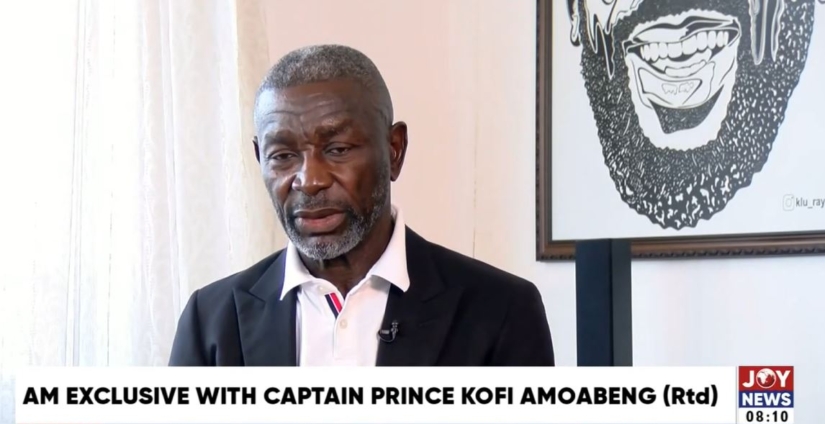Founder of the defunct UT Bank and UT Holdings, Capt. Rtd. Prince Kofi Amoabeng, has predicted that the woes of the local currency (the cedi) could deepen further, hitting GHȼ20 to a dollar by the end of the year.
According to him, the dollar almost always strengthens during an election year.
In an interview on Joy News AM Show on Thursday, May 16, he said, ”My fear is that if the cedi to the dollar is now GHȼ15 and we are just about getting to an election; the records are there that every time there's an election, there is a huge devaluation of the cedi.
“So I wouldn’t be surprised if the cedi by the end of the year is hovering around GHȼ 18 or 20.”
He highlighted the country's over-reliance on imports and the decline in exports as major contributory factors to the challenges facing the currency.
According to him, Ghana does not export adequate resources, and that even with cocoa exports which used to be significant, they are now decreasing.
He argued that countries with robust export economies experience strong growth, while those heavily reliant on imports face economic challenges.
Mr Amoabeng emphasised the need for better infrastructure, strategic planning, and holistic approaches to address these issues. He also pointed out that agricultural workers are leaving the sector due to insufficient support.
“So, unless we look into ourselves and take pragmatic action to reduce...initially it should be harsh, but certain things shouldn’t even be imported at all.
“So why is it that we’ve been forced to import things that we cannot pay for, I don’t get it."
As an example, Mr Amoabeng suggested focusing on local rice production instead of importing foreign rice to reduce the country's import cover.
Analysts are envisaging a continuous weakening trajectory of the local currency as foreign exchange demand-supply disparity remains substantial.
They, however, anticipate improved liquidity conditions towards the end of quarter two of 2024 after the International Monetary Fund (IMF) board approves the second review of Ghana’s programme. This will lead to a tranche disbursement of US$360 million under the IMF programme.
Latest Stories
-
Smallholder farmers to make use of Ghana Commodity Exchange
4 hours -
I want to focus more on my education – Chidimma Adetshina quits pageantry
4 hours -
Priest replaced after Sabrina Carpenter shoots music video in his church
4 hours -
Duct-taped banana artwork sells for $6.2m in NYC
4 hours -
Arrest warrants issued for Netanyahu, Gallant and Hamas commander over alleged war crimes
4 hours -
Actors Jonathan Majors and Meagan Good are engaged
4 hours -
Expired rice saga: A ‘best before date’ can be extended – Food and Agriculture Engineer
5 hours -
Why I rejected Range Rover gift from a man – Tiwa Savage
5 hours -
KNUST Engineering College honours Telecel Ghana CEO at Alumni Excellence Awards
5 hours -
Postecoglou backs Bentancur appeal after ‘mistake’
5 hours -
#Manifesto debate: NDC to enact and pass National Climate Law – Prof Klutse
5 hours -
‘Everything a manager could wish for’ – Guardiola signs new deal
6 hours -
TEWU suspends strike after NLC directive, urges swift resolution of grievances
6 hours -
Netflix debuts Grain Media’s explosive film
6 hours -
‘Expired’ rice scandal: FDA is complicit; top officials must be fired – Ablakwa
7 hours

